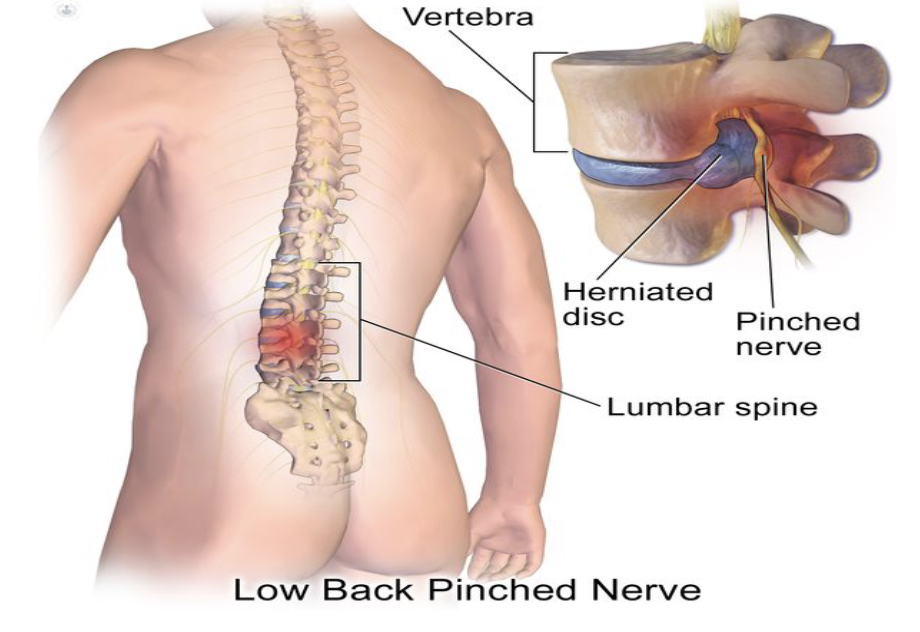In the field of back pain, one term that used to strike fear into the hearts of many was “slipped disc.”
However, as medical knowledge has evolved, so too has our understanding of this condition.
Today, we refer to it more accurately as a “spinal disc herniation.” This shift in terminology reflects a deeper comprehension of the underlying mechanics and pathology involved.
So, what exactly is a spinal disc herniation? Simply put, it occurs when the soft inner core of a spinal disc protrudes through the tough outer layer, often pressing on nearby nerves and causing pain, numbness, or weakness in the affected area. While the term “slipped disc” implies a displacement of the disc, “spinal disc herniation” clarifies the specific nature of the issue.

Can Physiotherapy help with a “Slipped Disc”?
Assessment: A Chartered Physiotherapist will begin by conducting a thorough assessment to understand the extent of the herniation and its impact on your daily life. This may involve discussing your symptoms, performing physical examinations, and possibly utilising imaging tests such as MRI scans to visualise the affected area.
Pain Management: Managing pain is often a primary goal of physiotherapy for spinal disc herniation. Through techniques such as manual therapy, gentle exercises, and modalities like heat or cold therapy, Chartered Physiotherapists can help alleviate pain and discomfort associated with the condition.
Improving Mobility and Function: Spinal disc herniation can significantly limit your mobility and function. Physiotherapy aims to address these limitations through targeted exercises and movement therapies. These may include stretches to improve flexibility, strengthening exercises to support the spine, and techniques to improve posture and body mechanics.
Education and Prevention: A key aspect of physiotherapy is empowering patients with knowledge about their condition and how to prevent future problems. Chartered Physiotherapists provide guidance on proper body mechanics, ergonomic principles, and strategies to minimise the risk of further injury or recurrence.
Gradual Return to Activity: As you progress in your recovery, your Chartered physiotherapist will work with you to gradually reintroduce activities and exercises tailored to your specific needs and goals. This step-by-step approach helps prevent re-injury while promoting long-term recovery and functional independence.
In conclusion, while the term “slipped disc” may be a thing of the past, the challenges posed by spinal disc herniation remain a significant concern for many. Fortunately, Chartered Physiotherapists offer effective assessment and treatment strategies to help individuals manage their symptoms, improve their function, and regain control of their lives.
This blog is provided for information purposes only. The content is not intended to be a substitute for professional medical advice, diagnosis or treatment. Seek the advice of your doctor with any queries regarding a medical condition.
